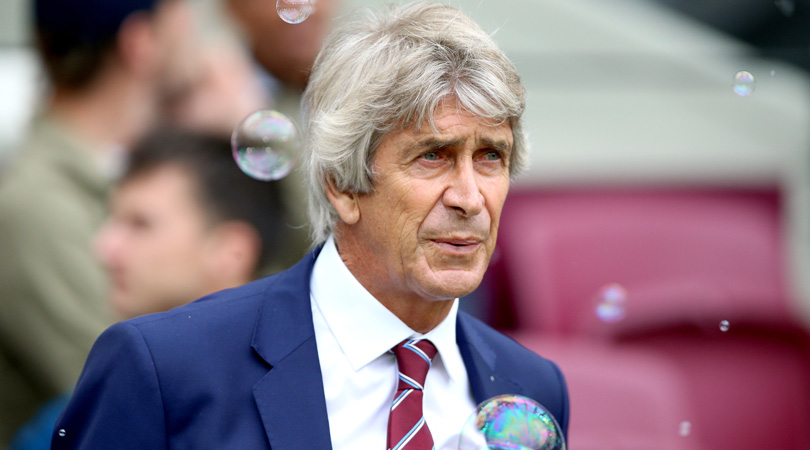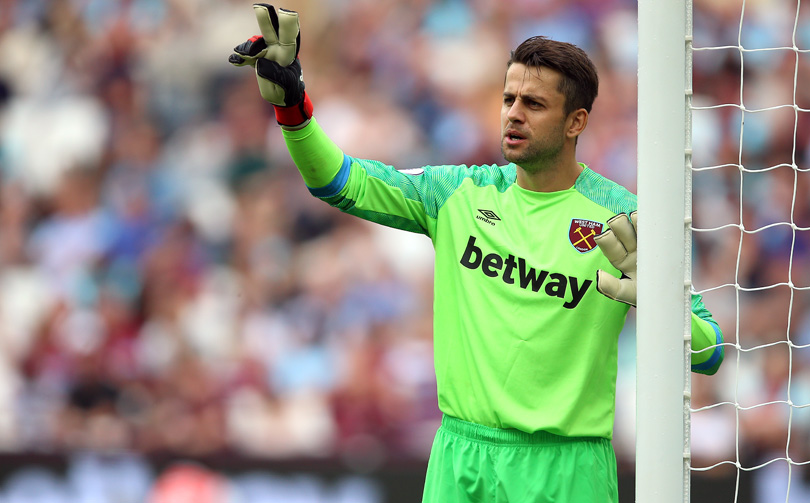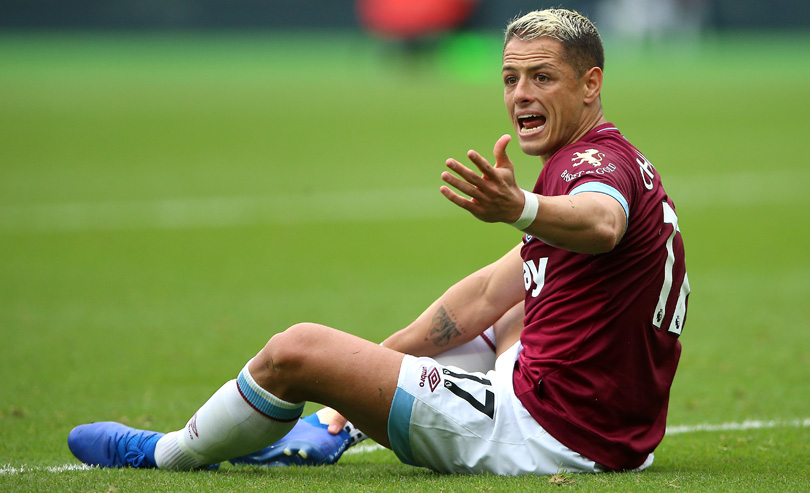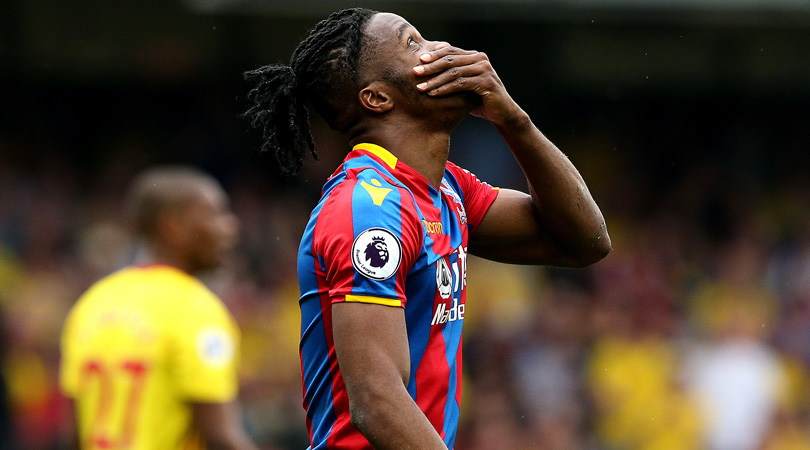West Ham’s muddled thinking has grim echoes of the recent past
With new signings benched and Manuel Pellegrini switching tactics and players, West Ham have stumbled out of the blocks despite their £100m summer spending, writes Richard Jolly

Manuel Pellegrini can specialise in statements of the obvious. “Of course we need to add points,” he said on Saturday after West Ham’s first three Premier League games had yielded none. “We need to win more games than we are going to lose.” A £100m spending spree would confer that expectation for most clubs.
And yet if a new regime – different manager, 10 summer signings – should bring a fresh start, there is a sense that West Ham are repeating their own history. To paraphrase Karl Marx; the first time as farce, the second time also as farce. They lost all three league games in August last year. Fast forward a year, and they mustered the same sort of 100% record, plus an unimpressive League Cup win.
Co-owner David Sullivan spoke of Pellegrini’s record of “taking teams forward quickly” when appointing the Chilean, and in one respect there has been improvement: West Ham conceded 10 goals from their first three league matches last season. It is down to nine this year.
The fact that those first three fixtures have included Liverpool and Arsenal away is a mitigating factor. It is understandable if a revamped side takes time to gel. And yet Pellegrini is a man whose vagueness can make him appear woolly, and confused thinking has been the common denominator in West Ham’s start.
Case against the defence
Take the poor, porous defence. New signing Lukasz Fabianski (below) has been both an improvement on Joe Hart and busy, recording 16 saves. But the £22m Issa Diop became the Hammers’ costliest ever defender this summer. The centre-back was an unused substitute for the first two games as the cheaper Fabian Balbuena and Angelo Ogbonna started.
Consider the issues at full-back. On the right, Ryan Fredericks has begun the first and third games, and Pablo Zabaleta the second. Presumably, if this is an odd rotation policy, the Argentine will therefore return for the fourth fixture against Wolves on Saturday.
Get FourFourTwo Newsletter
The best features, fun and footballing quizzes, straight to your inbox every week.
On the left, previous manager David Moyes transformed Arthur Masuaku from an erratic liability to an attacking menace by fielding him as a wing-back. Pellegrini has picked the Frenchman as a fully fledged left-back, exposing his defensive deficiencies and omitting Aaron Cresswell, a better full-back.

Defensive midfield? The sacked Slaven Bilic recognised a need for an upgrade last summer when William Carvalho was targeted; so did Moyes in January when Leander Dendoncker was identified. Instead, West Ham somehow orchestrated a downgrade this summer in a window where they spent £100m.
Exit Cheikhou Kouyate, enter Carlos Sanchez, and if that is being harsh on the Colombian – plenty of others were more culpable in Aston Villa’s ignominious relegation in 2015/16 – it is odd that West Ham only recruited in what felt the pivotal position as an afterthought in the final minute of the window.
Pedro Obiang, the remaining proven specialist defensive midfielder, has been an unused substitute in all three league games. Pairing Jack Wilshere and Mark Noble without a sidekick offering greater mobility or solidity proved a predictable disaster in the second half at Liverpool (when Declan Rice, the most mobile of an initial trio, was removed), and in the Bournemouth game, leaving the defence utterly exposed as more athletic players overran West Ham. Pellegrini’s comparison of Wilshere with Andrea Pirlo highlighted how West Ham have not allied him with an East End Gennaro Gattuso, a scrapper to dovetail with the stylist.
Wing and a prayer
At least Wilshere has been an ever-present. So, in a different way, has been Andriy Yarmolenko, except that the £17.5m Ukrainian’s three top-flight appearances have all come from the bench. He has been below Robert Snodgrass, the winger Sullivan said his kids begged him not to sign, in the pecking order.
In attack, Javier Hernandez has had a Zabaleta-like start to the season, being first out of the starting XI, then in, and then out again. Perhaps, being generous, Pellegrini is favouring two strikers for home games and just one for tougher away matches.

Taken in isolation, that is scarcely an irrational decision. Combined with the issues in other positions, however, it suggests a lack of clarity of thought which has affected every department of the side. It's understandable if a new manager doesn't know his strongest side in the embryonic stages of his reign.
Yet when three games bring three formations; when two of the three major summer signings begin as back-up players; when weaknesses are not remedied but compounde; it suggests West Ham are no more coherent in their planning than their performances.
And when Pellegrini spoke on Saturday about being certain that, by December, West Ham will be in mid-table, it underlined the disparity between outlay and outcomes. The fourth-biggest summer spenders sit bottom, seven points below Bournemouth and nine behind Watford. All of which marks a radical change from the past. Because a year ago, after three games, West Ham were seven points behind Huddersfield and West Brom instead.
Richard Jolly also writes for the National, the Guardian, the Observer, the Straits Times, the Independent, Sporting Life, Football 365 and the Blizzard. He has written for the FourFourTwo website since 2018 and for the magazine in the 1990s and the 2020s, but not in between. He has covered 1500+ games and remembers a disturbing number of the 0-0 draws.


